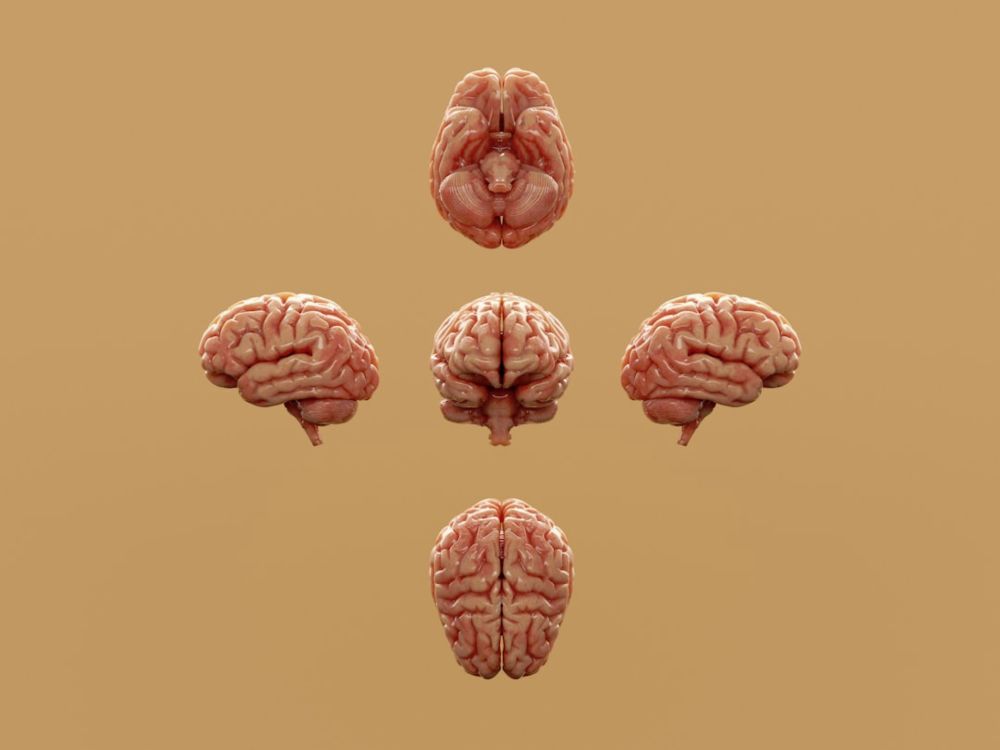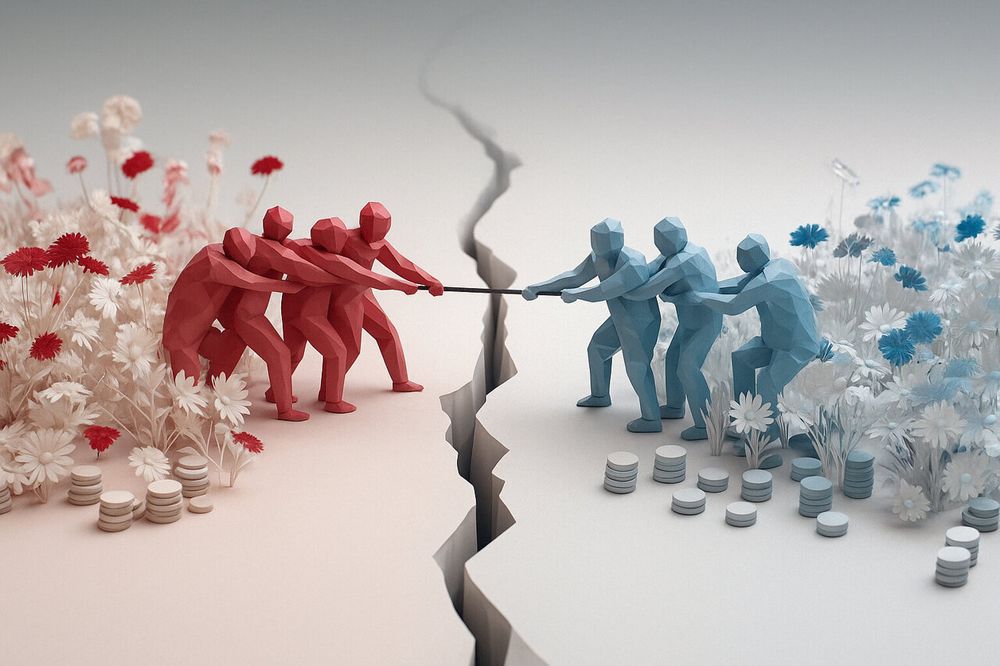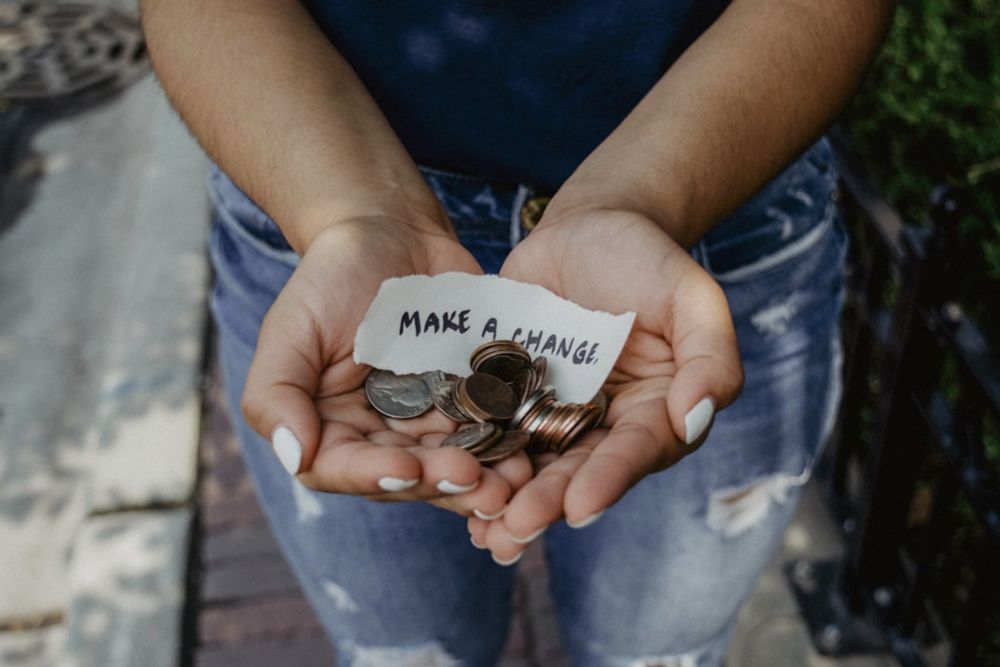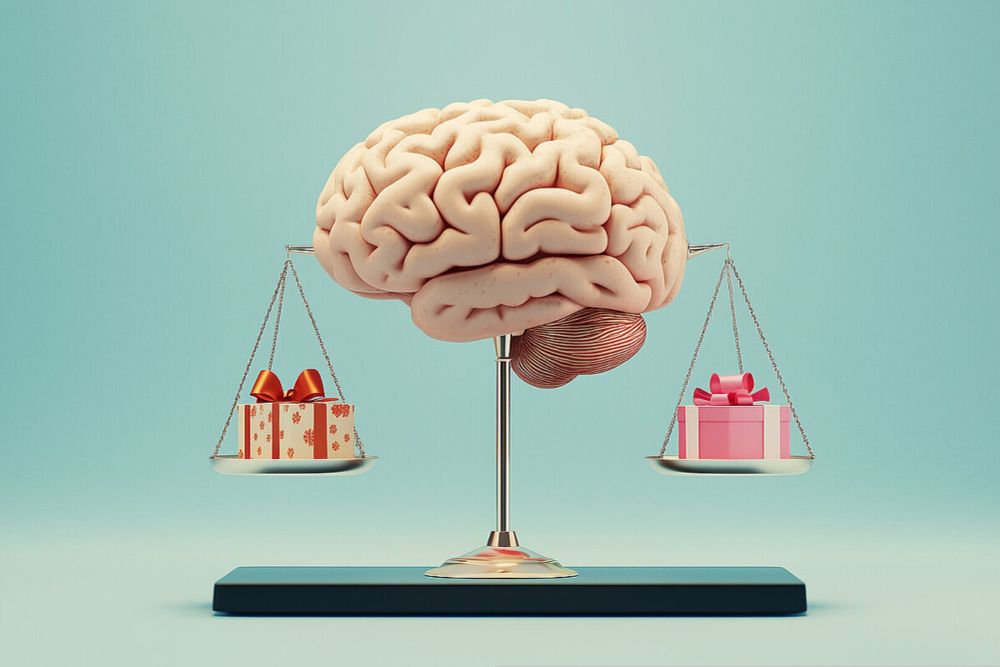
Wie unsere Psyche Schmerzen beeinflusst
Schmerz nervt, ist aber wichtig. Die Schmerzforscherin Susanne Becker erklärt, wie Schmerz funktioniert und wie wir ihn beeinflussen können.
Einige unserer Veranstaltungen gibt's regelmäßig im Podcast #Hörsaal vom Deutschlandfunk Nova zu hören. Im neuen Beitrag geht's um Schmerzen.
Sie sind lästig, niemand hat sie gern. Dennoch brauchen wir sie. Sie sind ein Warnsignal des Körpers und ein Zeichen von Wachstum - Stichwort Muskelkater. 1/2
02.02.2026 15:21 —
👍 3
🔁 2
💬 1
📌 0

Stress macht aggressiv und großzügig
Stress macht uns oft unfreundlich und aggressiv, aber auch großzügig und hilfsbereit. Diese beiden Reaktionen widersprechen sich nur scheinbar.
#Stress führt häufig dazu, dass wir gereizt(er) sind – er kann uns aber auch hilfsbereit oder großzügig machen.
In der neuen Folge des Podcasts #Hörsaal vom Deutschlandfunk Nova geht es um das Thema Stress mit Prof. Tobias @kalenscher.bsky.social. ⤵️ 1/2
www.deutschlandfunknova.de/beitrag/psyc...
20.01.2026 14:29 —
👍 7
🔁 4
💬 1
📌 0
Stress bestimmt den Alltag vieler Menschen. Doch wie wirkt er sich im sozialen Miteinander aus? Die Vergleichende Psychologie kommt zu verschiedenen Ergebnissen - von Aggressivität bis hin zu Hilfsbereitschaft.
Verantwortlich dafür sind verschiedene Botenstoffe im Gehirn. 1/3
02.12.2025 14:26 —
👍 5
🔁 2
💬 1
📌 0
Aber was genau passiert in unserem Körper, wenn wir gestresst sind? Und wie wirkt sich Stress auf unser soziales Miteinander aus?
In unserer Reihe “Forschung im Fokus” blickt Tobias Kalenscher (@kalenscher.bsky.social), Professor für Vergleichende Psychologie an der @hhu.de, auf das Thema. 2/3
20.11.2025 09:19 —
👍 2
🔁 1
💬 1
📌 0
...higher prosocial orientations than neurotypical controls. Key message: Autism is not only linked to social challenges but also to greater fairness and generosity. Congratulations, Paul!
@hhu.de @socforneuroecon.bsky.social @decisionneurop.bsky.social @leoschilbach.bsky.social @ucl.ac.uk
31.10.2025 12:09 —
👍 1
🔁 0
💬 1
📌 0
...In our new study, using a very different task and a new UK sample, we replicated the effect: Autistic participants again showed greater prosociality toward socially distant others. Crucially, this wasn’t due to repetitive responding or money attitudes. Autistic adults have genuinely...
31.10.2025 12:09 —
👍 0
🔁 0
💬 1
📌 0
…alongside altered connectivity in limbic brain regions. A translational step toward understanding social dysfunction in schizophrenia and other neuropsychiatric diseases. Congratulations, José, Yuliya and @ckorth.bsky.social !
30.10.2025 11:27 —
👍 1
🔁 0
💬 1
📌 0
Questionnaire | page 1
👉 Register: www.soscisurvey.de/tutorial4620...
ℹ️ Info: www.psychologie.hhu.de/en/arbeitsgr...
#neuroeconomics #prosocial #neuroscience
08.09.2025 09:01 —
👍 2
🔁 0
💬 0
📌 0

🧠✨ Düsseldorf Symposium on Decision Neuroscience.
📅 Sept 26, 2025 | 📍 Düsseldorf
A one-day, high-level event with leading speakers on dopamine, empathy, prosociality & neuroforecasting.
💸 Free! | 🌍 In person + online
@hhu.de @socforneuroecon.bsky.social @decisionneurop.bsky.social
08.09.2025 09:01 —
👍 5
🔁 2
💬 1
📌 0
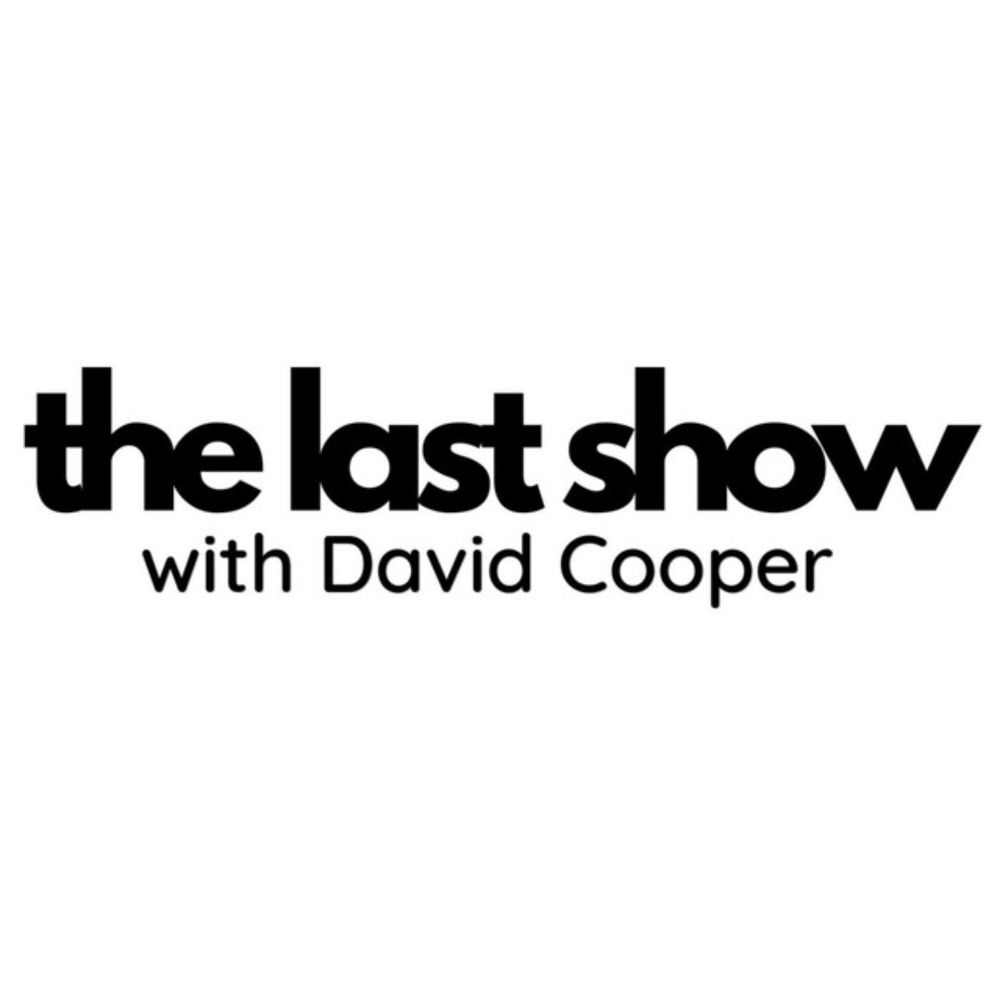
Mom, Don't Meddle In My Love Life - July 31, 2025
The Last Show with David Cooper · Episode
Yesterday I talked to David Cooper of The Last Show about our recent paper published in PNAS.
Listen here (starting around minute 51): open.spotify.com/episode/2tt9...
01.08.2025 18:58 —
👍 3
🔁 1
💬 1
📌 0
@luca-luepken.bsky.social
@hhu.de @socforneuroecon.bsky.social @pnas.org @decisionneurop.bsky.social #prosocial #socialneuroscience #PNAS #Stress #Cortisol #populism
25.07.2025 09:41 —
👍 2
🔁 0
💬 0
📌 0
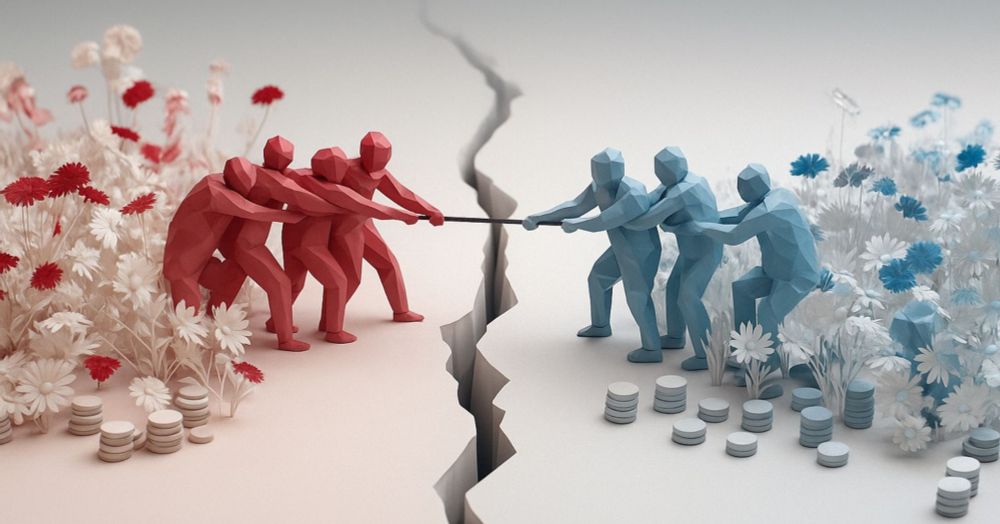
Us Versus Them
Does stress make us more aggressive or more helpful? New research suggests it does both. This dual effect may drive growing societal polarization and the persistence of conflict.
New blog post! I summarize our recent paper (www.pnas.org/doi/10.1073/...) how stress concurrently fosters ingroup support and outgroup competition, and what this has to do with societal polarization and conflict.
Us Versus Them | Psychology Today www.psychologytoday.com/us/blog/the-...
25.07.2025 09:41 —
👍 5
🔁 2
💬 1
📌 0
With Damon Dashti, Luca Lüpken, Douman Seidisarouei, Paul Forbes & Alfons Schnitzler
@hhu.de @socforneuroecon.bsky.social @pnas.org @hhu.de.web.brid.gy @decisionneurop.bsky.social #prosocial #socialneuroscience #PNAS #Neuroscience #Stress #Social #Polarization #ParochialAltruism #Cortisol #populism
15.07.2025 08:59 —
👍 0
🔁 0
💬 0
📌 0
PNAS
Proceedings of the National Academy of Sciences (PNAS), a peer reviewed journal of the National Academy of Sciences (NAS) - an authoritative source of high-impact, original research that broadly spans...
4/4
Our results, thus, offer a neurobiological mechanism for the populist playbooks how fear and stress contributes to rising polarization in society. It also sheds light on why intergroup conflicts escalate, and why they persist even among rational actors. Link: www.pnas.org/doi/10.1073/...
15.07.2025 08:59 —
👍 1
🔁 0
💬 1
📌 0
3/4
Thus, we show that this dual effect (ingroup altruism plus outgroup aggression) amplifies an “us-vs.-them” mentality. This helps explain how fear-based political messaging may trigger group cohesion and, at the same time, fuel hostility toward outsiders.
15.07.2025 08:59 —
👍 0
🔁 0
💬 1
📌 0
2/4
In our new study, we show:
🧪 Cortisol (main stress hormone) promotes cooperation with the ingroup
🧪 Noradrenaline (arousal transmitter) drives hostility toward outgroups, even at personal costs
Stress doesn't just make you aggressive or altruistic. It shapes who you support or oppose.
15.07.2025 08:59 —
👍 0
🔁 0
💬 1
📌 0
1/4
New paper in @pnas.org! How does stress affect our social decisions in conflict? More aggression (fight-or-flight)? Or more altruism (tend-and-befriend)? Our new study suggests: it’s not either/or, stress promotes both at once, depending on the neurochemical balance and the social context. 🧠
15.07.2025 08:59 —
👍 15
🔁 5
💬 1
📌 1
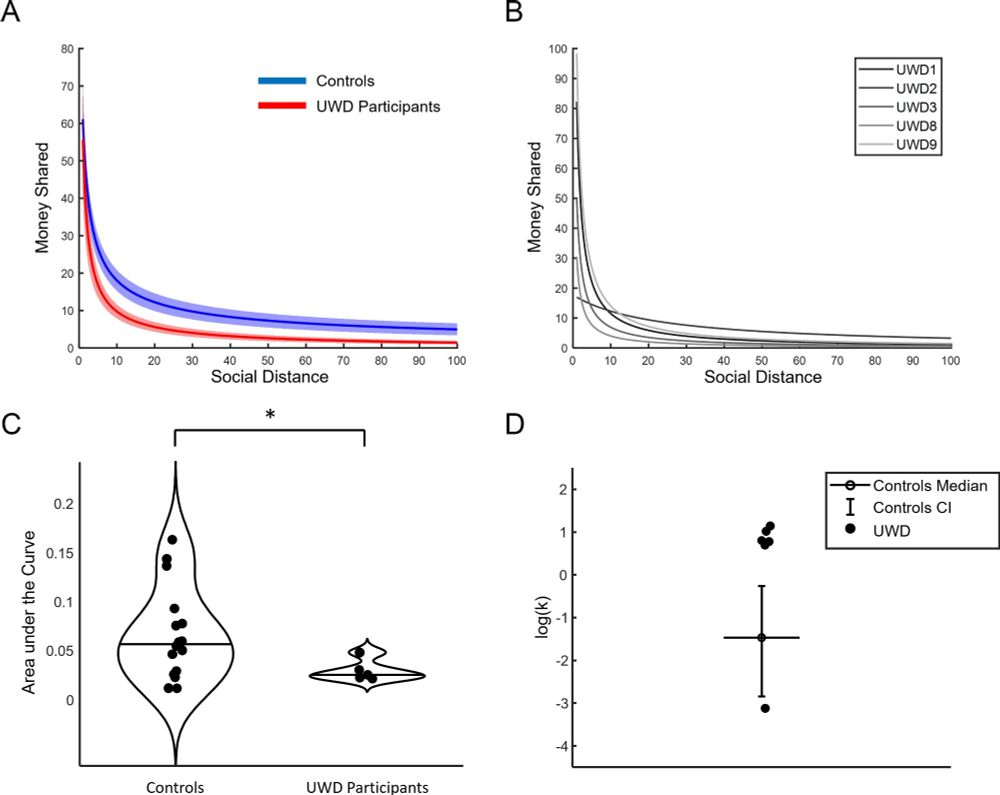
Steeper social discounting after human basolateral amygdala damage | PNAS
Translational research suggests that the basolateral part of the amygdala (BLA) computes
some of the core processes underlying social preferences, ...
based on social-emotional distance between individuals. This finding is consistent with theoretical ideas highlighting the BLA’s importance in balancing self- and other-regarding motives, underlining its crucial role in model-based social cognition.
16.04.2025 19:43 —
👍 0
🔁 0
💬 1
📌 0
varying in social-emotional distance. We found that, while BLA was not essential for prosociality per se, it played a critical role in calibrating generosity depending how socially close or distant the participants felt to the other people. Hence, BLA fine-tuned prosocial behavior
16.04.2025 19:43 —
👍 0
🔁 0
💬 1
📌 0
We studied South-African individuals with the very rare Urbach-Wiethe disease who have selective damage to the BLA. Urbach-Wiethe subjects and matched controls played a social discounting game – a game in which they could distribute money between themselves and other people
16.04.2025 19:43 —
👍 2
🔁 0
💬 1
📌 0

Steeper social discounting after human basolateral amygdala damage | PNAS
Translational research suggests that the basolateral part of the amygdala (BLA) computes
some of the core processes underlying social preferences, ...
Why are we generous to some people but not to others? And which brain mechanisms govern our decision to be generous toward others? In our latest research, published in @pnas.org (www.pnas.org/doi/10.1073/...), we report steeper social discounting after human basolateral amygdala (BLA) lesions.
16.04.2025 19:43 —
👍 8
🔁 2
💬 1
📌 1








